Pass Your CompTIA IT Fundamentals Certification Easy!
CompTIA IT Fundamentals Certification Exams Questions & Answers, Accurate & Verified By IT Experts
Instant Download, Free Fast Updates, 99.6% Pass Rate.

$69.99
Download Free CompTIA IT Fundamentals Practice Test Questions VCE Files
| Exam | Title | Files |
|---|---|---|
Exam FC0-U51 |
Title CompTIA IT Fundamentals |
Files 7 |
Exam FC0-U61 |
Title CompTIA IT Fundamentals |
Files 5 |
CompTIA IT Fundamentals Certification Exam Dumps & Practice Test Questions
Prepare with top-notch CompTIA IT Fundamentals certification practice test questions and answers, vce exam dumps, study guide, video training course from ExamCollection. All CompTIA IT Fundamentals certification exam dumps & practice test questions and answers are uploaded by users who have passed the exam themselves and formatted them into vce file format.
CompTIA IT Fundamentals (ITF+) Certification: A Complete Guide to Skills, Preparation, and Career Growth
In today’s technology-driven world, basic IT skills have become essential for nearly every profession. From healthcare to finance, education to business, understanding the core principles of technology can give individuals a significant advantage. The CompTIA IT Fundamentals (ITF+) certification is designed to provide a solid foundation in IT, helping beginners explore technology concepts, gain practical knowledge, and prepare for more advanced IT certifications in the future.
ITF+ is particularly useful for students considering a career in technology, career changers seeking entry-level IT roles, or professionals in non-technical fields who frequently interact with digital systems. The certification emphasizes practical understanding, ensuring candidates can apply concepts in real-world scenarios, from troubleshooting basic issues to recognizing security risks.
Who Should Pursue ITF+ Certification
The ITF+ certification is versatile and caters to a broad audience. Individuals who can benefit include:
Students exploring IT careers
Professionals in business, sales, or administration who need to understand technology
Career changers looking to transition into IT roles
Anyone interested in validating their foundational IT knowledge
Unlike advanced certifications that require prior experience, ITF+ is beginner-friendly, making it an ideal stepping stone for more specialized certifications such as CompTIA A+, Network+, or Security+. It allows candidates to develop confidence in handling IT tasks, understand technical terminology, and become familiar with basic hardware, software, and networking concepts.
Key Objectives of ITF+ Certification
The certification focuses on six major domains that provide a well-rounded understanding of IT fundamentals. Each domain equips candidates with essential skills for navigating technology effectively.
IT Concepts and Terminology
Understanding core IT concepts and terminology is the foundation of the ITF+ certification. Candidates learn about common hardware components, types of software, and basic networking principles. This includes recognizing operating systems, file management, and the purpose of various applications. Developing familiarity with these terms enables individuals to communicate effectively with IT professionals and interpret technical documentation accurately.
Infrastructure
This domain covers the fundamental elements of IT infrastructure, both hardware and software. Candidates gain insight into the role of computers, peripheral devices, and networking equipment in building functional IT environments. Topics include:
Central processing units, memory, and storage devices
Input and output devices such as keyboards, mice, and printers
Basic networking equipment like routers, switches, and access points
Introduction to cloud computing and virtualization
Understanding infrastructure helps candidates troubleshoot common technical issues, maintain systems, and optimize performance in both personal and professional settings.
Applications and Software
Software knowledge is essential for effective interaction with technology. ITF+ introduces candidates to various types of applications, their purposes, and basic management. This includes productivity tools, system utilities, and specialized applications for specific industries. Candidates also learn about software installation, configuration, and updates, which are critical for maintaining smooth and secure system operation.
Software Development Fundamentals
While ITF+ is not a programming certification, it provides an overview of software development principles. Candidates learn about the software development lifecycle, basic programming concepts, and how applications are designed and maintained. This knowledge helps individuals understand how software works behind the scenes and prepares them for further studies in programming or application management.
Database Fundamentals
Managing and understanding data is a key skill in today’s digital environment. ITF+ covers the basics of databases, including how data is organized, stored, and retrieved. Candidates learn about different types of databases, common data management techniques, and basic querying methods. These skills are useful for roles that require data entry, reporting, or understanding information flow within an organization.
Security Fundamentals
Security is a critical component of IT. ITF+ emphasizes the importance of protecting systems, networks, and data from threats. Candidates learn about safe computing practices, common security risks, and basic protective measures. This includes understanding malware, phishing attacks, password management, and secure use of networks and cloud services. Developing an awareness of security principles is essential for minimizing risk in any IT environment.
Benefits of ITF+ Certification
Earning ITF+ certification provides a range of advantages that extend beyond technical knowledge. Some of the key benefits include:
Career Readiness
ITF+ demonstrates foundational IT knowledge, making candidates more attractive for entry-level IT roles. Many organizations value employees who can confidently navigate technology, troubleshoot minor issues, and support technical operations. ITF+ provides the credibility needed to pursue positions such as IT support, help desk associate, or administrative roles with technical responsibilities.
Confidence in Technology
For beginners, ITF+ helps build confidence in using and understanding technology. Candidates gain hands-on experience with hardware, software, and networks, allowing them to approach technical challenges with greater assurance. This confidence often translates into improved productivity and efficiency in the workplace.
Foundation for Advanced Certifications
ITF+ serves as a stepping stone to higher-level IT certifications. Knowledge gained from ITF+ prepares candidates for CompTIA A+, Network+, and Security+, providing a smoother learning curve for more complex concepts. This makes it an essential first step for those planning a long-term career in IT.
Versatility Across Industries
ITF+ knowledge is applicable in virtually any sector. Professionals in healthcare, finance, education, business, and government can benefit from understanding the basics of IT systems. The certification equips individuals to adapt to technology-driven environments, communicate effectively with IT teams, and contribute to digital initiatives within their organizations.
Exam Details
The ITF+ exam evaluates candidates on both theoretical understanding and practical application of IT concepts. The exam typically consists of multiple-choice and performance-based questions, testing knowledge across the six domains. Candidates are assessed on their ability to identify hardware components, understand software functionality, troubleshoot common issues, and apply security best practices.
The exam is designed to ensure that candidates can apply IT knowledge in real-world scenarios. Preparation involves not only memorizing concepts but also gaining practical experience through hands-on exercises. Candidates who actively engage with hardware, software, and networking tools tend to perform better and retain knowledge longer.
Preparing for the ITF+ Exam
Effective preparation is key to success in the ITF+ exam. Candidates should approach preparation with a structured plan that covers theory, practical exercises, and practice tests. Key strategies include:
Reviewing Exam Objectives
Understanding the topics covered in the exam is critical. CompTIA provides a detailed list of objectives outlining the knowledge and skills required. Candidates should review each domain, ensuring they understand key concepts and terminology.
Hands-On Practice
Practical experience reinforces theoretical knowledge. Candidates should interact with hardware, install and configure software, and explore basic networking setups. Hands-on exercises help solidify understanding and improve problem-solving skills.
Practice Tests
Taking practice exams familiarizes candidates with the format and style of questions they will encounter. Practice tests help identify areas of weakness, allowing candidates to focus their study efforts more effectively. They also build confidence and improve time management during the actual exam.
Study Groups and Online Communities
Engaging with peers can enhance learning. Study groups, forums, and online communities provide opportunities to ask questions, share knowledge, and discuss difficult concepts. Collaboration often leads to deeper understanding and new insights.
Structured Study Materials
Using textbooks, online courses, and study guides tailored to ITF+ ensures comprehensive coverage of the exam objectives. Structured study materials provide clear explanations, examples, and practice exercises, helping candidates systematically prepare for the exam.
Real-World Applications of ITF+
ITF+ certification equips individuals with practical skills that can be applied in everyday work and life. For example:
Troubleshooting basic hardware and software issues in a workplace setting
Understanding and configuring network connections for small offices or home setups
Recognizing security threats and applying preventive measures
Managing software updates and configurations efficiently
Communicating effectively with technical teams using appropriate terminology
These applications demonstrate the value of ITF+ beyond certification, allowing individuals to contribute meaningfully to their organizations while enhancing personal digital literacy.
Building a Career Path with ITF+
ITF+ serves as the first step in a structured IT career path. After gaining foundational knowledge, candidates can pursue additional certifications such as CompTIA A+ to focus on technical support, Network+ for networking skills, and Security+ for cybersecurity expertise. Each certification builds on the knowledge gained from ITF+, providing a progressive learning path toward specialized IT roles.
Employers often view ITF+ as evidence of commitment to learning and professional growth. For individuals planning a long-term career in IT, starting with ITF+ ensures a strong base, making subsequent certifications and career advancements more accessible and achievable.
The CompTIA IT Fundamentals (ITF+) certification is a comprehensive introduction to the world of information technology. It is designed to provide beginners with the knowledge, skills, and confidence to navigate technology effectively. By covering essential IT concepts, infrastructure, software, databases, security, and development fundamentals, ITF+ equips individuals with a well-rounded foundation applicable across industries.
Earning ITF+ opens doors to entry-level IT positions, enhances digital literacy, and prepares candidates for advanced certifications and career growth. Whether exploring IT as a career, enhancing workplace skills, or improving personal technical understanding, ITF+ is a valuable credential that lays the groundwork for future success in the technology-driven world.
Preparing Effectively for the ITF+ Exam
Achieving the CompTIA IT Fundamentals (ITF+) certification requires more than simply reading study guides. A structured approach combining theoretical knowledge with practical application is essential. Preparation involves understanding exam objectives, practicing hands-on tasks, using reliable study resources, and assessing readiness through mock tests.
Success begins with familiarity with the exam structure and objectives. CompTIA provides a detailed exam outline specifying the topics covered, question formats, and weighting of each domain. Candidates should use this as a roadmap to ensure comprehensive coverage of all required areas.
Understanding Exam Objectives
The ITF+ exam covers six key domains. Reviewing each domain thoroughly is critical:
IT Concepts and Terminology
This domain tests candidates on their ability to recognize common IT terminology, understand computing concepts, and identify how hardware and software work together. Candidates should be comfortable with:
Differentiating between various types of devices, such as input, output, and storage devices
Understanding operating systems, application software, and utility programs
Recognizing basic networking concepts and protocols
Familiarity with terminology ensures candidates can interpret questions correctly and apply concepts in real-world situations.
Infrastructure
The infrastructure domain focuses on the physical and virtual components of IT systems. Candidates should understand:
Types of hardware components, their functions, and troubleshooting methods
Networking devices and the principles of wired and wireless connections
Cloud computing concepts and virtualization techniques
Hands-on experience with devices and networking setups reinforces learning and helps candidates retain critical information.
Applications and Software
Candidates should understand the purpose of different types of software, installation procedures, configuration, and maintenance practices. Areas to focus on include:
Productivity applications such as word processors, spreadsheets, and presentation software
System utilities that optimize computer performance
Software licensing models and update procedures
Being able to identify software types and their purposes aids in both the exam and practical workplace scenarios.
Software Development Fundamentals
While not an in-depth programming course, ITF+ introduces candidates to software development concepts. Candidates should learn:
Basic programming principles and logic
The software development lifecycle and common methodologies
How software applications are designed, tested, and maintained
Understanding these principles provides a foundation for advanced certifications and fosters problem-solving skills when interacting with software systems.
Database Fundamentals
Database knowledge is increasingly important in IT roles. Candidates should understand:
How data is stored, organized, and retrieved
The structure and purpose of relational and non-relational databases
Basic querying concepts and data management practices
Database familiarity enables candidates to understand information flow within organizations and supports tasks such as generating reports or entering data efficiently.
Security Fundamentals
Security is a cornerstone of modern IT environments. ITF+ emphasizes safe practices, risk awareness, and basic protective measures. Candidates should focus on:
Identifying common threats like malware, phishing, and social engineering attacks
Understanding password management, encryption, and secure network use
Recognizing best practices for personal and organizational data protection
Awareness of security fundamentals equips candidates to prevent common vulnerabilities and contribute to safe IT practices in the workplace.
Study Strategies for ITF+ Certification
Effective preparation requires a combination of structured study, practice, and self-assessment. Some recommended strategies include:
Structured Learning
Using textbooks, online courses, and study guides ensures that candidates cover all exam domains systematically. These resources provide clear explanations, diagrams, and examples that help consolidate knowledge. Structured learning also allows candidates to track progress and revisit weak areas before the exam.
Hands-On Practice
Practical experience is invaluable for ITF+ success. Candidates should engage with:
Hardware: assembling components, identifying parts, and troubleshooting issues
Software: installing applications, configuring settings, and using system utilities
Networking: setting up simple networks, connecting devices, and testing connectivity
Hands-on exercises reinforce theoretical knowledge, making it easier to recall information during the exam and apply skills in real-world scenarios.
Practice Tests
Mock exams help candidates familiarize themselves with question formats and timing. Practice tests also highlight areas that need improvement, allowing candidates to focus their study effectively. Repeated testing builds confidence and reduces anxiety on exam day.
Study Groups and Discussion Forums
Collaborating with peers or joining online communities provides opportunities to ask questions, share insights, and discuss difficult concepts. Group discussions often lead to a deeper understanding of material and expose candidates to different perspectives and problem-solving approaches.
Time Management
Candidates should develop a study schedule that balances daily learning with review sessions. Breaking study sessions into focused periods of 60 to 90 minutes with short breaks helps maintain concentration and prevents burnout. Regular review of previously studied material reinforces memory retention.
Hands-On Experience and Lab Work
Hands-on labs are essential for reinforcing ITF+ concepts. Candidates should spend time interacting with hardware, software, and networking components. Some practical exercises include:
Assembling and disassembling a computer to identify components
Installing and configuring operating systems
Setting up wired and wireless networks, including IP configuration
Practicing software installation, updates, and configuration
Simulating security scenarios, such as creating strong passwords and identifying phishing attempts
These exercises help candidates translate theoretical knowledge into practical skills, enhancing both exam performance and workplace readiness.
Software and Tools for Preparation
Various software tools can assist candidates in preparing for ITF+. Virtual labs, simulation software, and practice applications provide a safe environment to experiment with systems without the risk of damaging real equipment. Examples include:
Virtual machine software for testing different operating systems
Network simulation tools to practice connectivity and troubleshooting
Database simulation software to understand data management basics
Security awareness applications to simulate threats and responses
Using these tools allows candidates to gain experience and confidence, preparing them for both the exam and practical IT tasks.
Time Allocation for Study
Preparation for ITF+ should be systematic, with sufficient time allocated to each domain based on individual strengths and weaknesses. A recommended approach includes:
Initial review of all domains to assess knowledge gaps
Focused study on weaker areas while maintaining review of stronger topics
Regular hands-on practice sessions to reinforce learning
Practice exams every few weeks to track progress and adjust study plans
Consistency and disciplined time management significantly increase the likelihood of passing the exam on the first attempt.
Common Challenges and How to Overcome Them
Candidates often face challenges while preparing for ITF+, including information overload, difficulty with technical terminology, and lack of hands-on experience. These challenges can be mitigated by:
Breaking study material into manageable sections
Using flashcards or digital apps to memorize key terms and concepts
Engaging in practical exercises regularly to strengthen understanding
Seeking help from instructors, mentors, or online forums when concepts are unclear
By addressing challenges proactively, candidates can maintain momentum and build confidence throughout the preparation process.
Understanding the Exam Format
The ITF+ exam typically consists of multiple-choice and performance-based questions. Understanding the format is important for success. Candidates should be prepared to:
Identify correct answers among several options
Solve problems based on practical scenarios
Apply knowledge of IT fundamentals to simulated situations
Familiarity with the exam format reduces anxiety and improves efficiency during the test. Time management is crucial, as candidates need to answer questions accurately within the allotted period.
Importance of Practical Knowledge
While theoretical understanding is necessary, ITF+ emphasizes practical application. Candidates who engage in hands-on practice are better prepared to:
Troubleshoot basic computer and network issues
Configure software and hardware settings
Apply security best practices in real-world environments
This practical knowledge not only aids in passing the exam but also provides a foundation for workplace readiness, making candidates valuable contributors to any organization.
Building Confidence Through Preparation
Confidence plays a significant role in exam success. Candidates should aim to:
Review material thoroughly to ensure understanding
Practice regularly to reinforce knowledge and skills
Take timed mock exams to simulate test conditions
Address weaknesses and misconceptions proactively
Confidence, combined with knowledge and practical experience, ensures that candidates can perform effectively on the ITF+ exam and in real-world IT scenarios.
Preparation Steps
To summarize, effective ITF+ preparation involves:
Reviewing exam objectives and understanding each domain
Engaging in hands-on practice with hardware, software, and networks
Using structured study resources such as textbooks, courses, and guides
Participating in study groups or online communities for discussion
Taking practice exams to assess readiness and improve performance
Managing study time effectively and addressing challenges proactively
Following these steps provides candidates with a clear roadmap for success and ensures they are well-prepared for both the exam and real-world IT applications.
Exploring Hardware Fundamentals
A solid understanding of hardware is essential for any IT professional. The ITF+ certification emphasizes the components that make up a computer system and how they interact. Hardware knowledge not only helps in passing the exam but also equips candidates with practical skills for troubleshooting and system maintenance.
Internal Components
The internal components of a computer form the backbone of any computing system. Key elements include:
Central Processing Unit (CPU): Often referred to as the brain of the computer, the CPU executes instructions and processes data. Understanding CPU types, cores, and clock speeds is fundamental.
Memory: RAM (Random Access Memory) temporarily stores data for quick access, while ROM (Read-Only Memory) stores permanent system instructions. Knowledge of memory types, capacity, and speed is important for system performance.
Storage Devices: Hard Disk Drives (HDDs) and Solid State Drives (SSDs) store data long-term. SSDs provide faster access speeds, while HDDs offer larger storage capacity at a lower cost.
Motherboard: This is the central circuit board connecting all components. Candidates should understand ports, slots, and expansion capabilities.
Power Supply Unit (PSU): Converts electricity from a wall outlet into usable power for internal components.
Understanding these components enables candidates to troubleshoot issues such as slow performance, startup failures, and hardware conflicts.
External Components
External components, or peripherals, allow interaction with the computer and expand its functionality. These include:
Input Devices: Keyboard, mouse, scanner, and microphone.
Output Devices: Monitor, printer, speakers.
External Storage: USB drives, external hard drives, and SD cards.
Candidates should be able to identify these devices, understand their purpose, and troubleshoot common issues, such as connectivity problems or device recognition errors.
Maintenance and Troubleshooting
Hardware maintenance is crucial for system longevity and performance. Candidates should understand:
Cleaning and dust management to prevent overheating
Proper cable management to avoid electrical hazards
Diagnosing component failures using diagnostic software or error codes
Upgrading components to improve performance
Hands-on practice with assembling and disassembling systems reinforces understanding and builds confidence in working with real-world setups.
Software Fundamentals
Software is the interface between users and hardware. ITF+ covers different types of software, their purposes, and basic management techniques.
Types of Software
Candidates should understand the distinction between:
System Software: Operating systems (Windows, macOS, Linux) that manage hardware and provide a platform for applications.
Application Software: Productivity tools, media players, and specialized applications used to perform specific tasks.
Utility Software: Tools that maintain, optimize, or secure computer systems, such as antivirus programs and disk management utilities.
Recognizing software types is essential for installation, configuration, and troubleshooting tasks.
Installation and Configuration
Proper installation and configuration ensure software runs efficiently and securely. Key practices include:
Following installation prompts carefully
Understanding licensing agreements and activation procedures
Configuring settings according to user needs and security best practices
Performing regular updates to maintain functionality and security
Candidates should also be familiar with uninstalling software safely, managing system resources, and resolving compatibility issues.
Troubleshooting Common Software Issues
Software problems are common in IT environments. Candidates should know how to:
Resolve application crashes or freezing
Manage system errors and notifications
Restore software to default settings when misconfigured
Use task management tools to identify resource-intensive applications
Practical experience in troubleshooting software issues reinforces theoretical knowledge and enhances problem-solving skills.
Networking Fundamentals
Networking is an essential IT concept. ITF+ introduces the basics of networking, helping candidates understand how devices communicate and share resources.
Network Types
Understanding different types of networks is crucial. Key types include:
Local Area Network (LAN): Connects devices within a limited area, such as an office or home.
Wide Area Network (WAN): Covers larger geographic areas, connecting multiple LANs.
Wireless Networks: Use Wi-Fi or Bluetooth to connect devices without cables.
Candidates should understand network topologies, including star, bus, and mesh configurations, and the advantages and disadvantages of each.
Network Components
Key networking components candidates need to know include:
Routers: Connect different networks and direct traffic efficiently.
Switches: Connect devices within a LAN and manage data traffic.
Access Points: Provide wireless connectivity to devices.
Modems: Convert signals for internet access.
Understanding these devices helps in configuring networks and troubleshooting connectivity issues.
Networking Protocols
Networking relies on protocols to facilitate communication. Candidates should be familiar with:
TCP/IP: The foundational protocol suite for internet communication.
DNS: Resolves domain names into IP addresses.
DHCP: Assigns IP addresses automatically to devices on a network.
HTTP/HTTPS: Protocols for web communication.
Knowledge of protocols helps candidates understand network functionality and troubleshoot issues effectively.
Network Security Basics
Security is a critical aspect of networking. Candidates should understand:
Wireless security protocols like WPA2 and WPA3
Importance of strong passwords and network segmentation
Basic firewall concepts and intrusion prevention
Risks of open or unsecured networks
Applying these principles in real-world scenarios protects data and prevents unauthorized access.
Database Fundamentals
Data management is a cornerstone of IT. ITF+ introduces candidates to the basics of databases, helping them understand how data is stored, accessed, and manipulated.
Database Concepts
Candidates should understand:
Data storage structures, such as tables and records
Relational vs non-relational databases
Primary keys and relationships between data elements
Indexing for faster data retrieval
This knowledge provides a foundation for more advanced database management and data analysis tasks.
Basic Data Operations
Practical skills in working with databases include:
Inserting, updating, and deleting data records
Performing simple queries to retrieve information
Understanding basic reporting and analysis
Ensuring data integrity and accuracy
Hands-on practice with database tools enhances understanding and prepares candidates for practical workplace tasks.
Security Fundamentals
Security is an essential part of IT. ITF+ emphasizes awareness and practical measures to protect systems and data.
Common Threats
Candidates should recognize:
Malware: Viruses, worms, ransomware, and spyware
Phishing and social engineering attacks
Unauthorized access attempts
Data loss due to hardware failure or human error
Understanding threats helps candidates apply appropriate preventive measures.
Security Best Practices
Practical security skills include:
Using strong, unique passwords and multi-factor authentication
Regularly updating software and applying patches
Encrypting sensitive data and communications
Backing up data to prevent loss
Security awareness not only protects systems but also demonstrates professional responsibility in IT roles.
Safe Internet Practices
Candidates should understand safe practices for online activities, including:
Avoiding suspicious links and attachments
Recognizing secure websites (HTTPS)
Managing cookies and privacy settings
Using antivirus and firewall protections
These skills are essential for both personal and professional digital safety.
Real-World Applications
Knowledge of hardware, software, networking, databases, and security allows ITF+ candidates to apply their skills in practical settings:
Configuring home or office networks for optimal performance
Installing and troubleshooting software for productivity
Identifying and mitigating security risks
Managing and retrieving data from databases
Maintaining and upgrading hardware components
By applying these concepts, candidates gain confidence and demonstrate readiness for entry-level IT positions.
Career Implications
ITF+ certification opens doors to multiple career opportunities, including:
IT support and help desk roles
Administrative positions requiring technical knowledge
Network technician or junior system administrator roles
Entry-level cybersecurity support positions
Employers value ITF+ certification as evidence of foundational IT knowledge, practical skills, and a willingness to learn. It also sets the stage for more advanced certifications and career progression.
Mastering hardware, software, networking, databases, and security fundamentals is critical for ITF+ candidates. Practical experience, combined with theoretical understanding, ensures readiness for the exam and equips individuals with real-world skills applicable across industries.
The ITF+ certification not only validates foundational IT knowledge but also enhances problem-solving abilities, improves digital literacy, and prepares candidates for a structured career path in technology. By investing time in hands-on practice, study, and understanding core concepts, candidates build a strong foundation that supports long-term success in the IT field.
Advanced Practical Scenarios
One of the strengths of the ITF+ certification is its focus on practical knowledge. Beyond understanding theory, candidates must be able to apply their skills to real-world scenarios. This section explores typical situations ITF+ professionals may encounter and how foundational knowledge prepares them to respond effectively.
Troubleshooting Hardware Issues
A critical skill for ITF+ candidates is the ability to troubleshoot hardware problems. Common issues include:
Computer fails to start: Candidates should check power connections, inspect the PSU, verify RAM and CPU seating, and test the motherboard for faults.
Peripheral malfunctions: Printers, keyboards, and monitors may not function due to loose connections, driver issues, or hardware defects. Candidates should inspect connections, update drivers, and perform device tests.
Slow performance: Overloaded RAM, fragmented storage, or outdated components can cause lag. Practical solutions include increasing memory, upgrading storage devices, and closing unnecessary applications.
Hands-on practice in identifying and resolving these problems reinforces learning and prepares candidates for workplace challenges.
Software Troubleshooting
Software-related problems are common in IT environments. Candidates should understand how to resolve issues such as:
Application crashes or freezing: Check system compatibility, update software, and review system logs.
Installation errors: Ensure proper permissions, verify system requirements, and remove conflicting programs.
Malware or virus infections: Use antivirus tools to detect and remove threats, update security definitions, and implement preventive measures.
Being able to troubleshoot software efficiently minimizes downtime and maintains productivity in organizational settings.
Networking Troubleshooting
Networks are essential for communication and data sharing. ITF+ candidates must be able to identify and fix common network issues:
Connectivity problems: Check cabling, verify router and switch configurations, and ensure devices have correct IP settings.
Slow network speeds: Identify bandwidth-heavy applications, check for interference in wireless networks, and optimize device placement.
Security breaches: Recognize unauthorized access, change passwords, update firewalls, and monitor network traffic.
Understanding both hardware and protocol aspects of networks allows candidates to resolve issues promptly.
Case Studies and Real-World Examples
Practical examples provide insight into how ITF+ knowledge is applied in professional settings.
Case Study 1: Office Hardware Upgrade
An office plans to upgrade all computers to improve performance. Candidates applying ITF+ knowledge would:
Assess existing hardware and identify components needing replacement
Select compatible CPUs, RAM, and storage devices
Ensure software is compatible with new hardware
Test systems after installation to confirm performance improvements
This demonstrates the importance of hardware knowledge in planning and executing IT improvements.
Case Study 2: Network Configuration
A small business requires a secure and efficient network setup. ITF+ candidates would:
Identify networking needs and select appropriate devices (routers, switches, access points)
Configure IP addresses, DHCP settings, and wireless security
Test connectivity and troubleshoot any issues
Implement basic security measures such as firewalls and password protection
Practical networking knowledge ensures the business has reliable and secure communication infrastructure.
Case Study 3: Software Deployment and Maintenance
An organization wants to deploy a new productivity suite. ITF+ candidates would:
Evaluate system requirements for all devices
Install and configure software correctly
Update applications and verify license compliance
Provide basic training to staff on usage and troubleshooting
This scenario illustrates the importance of software management skills in everyday IT operations.
Case Study 4: Security Awareness Implementation
A company faces rising cybersecurity threats and needs staff to follow best practices. ITF+ candidates would:
Conduct a security awareness program covering phishing, malware, and password policies
Implement data backup strategies and encryption methods
Monitor networks for unusual activity and report incidents
Ensure regular updates and patches for all systems
Security knowledge helps prevent data breaches and strengthens organizational resilience.
Practical Skills for Workplace Readiness
ITF+ equips candidates with skills that are immediately applicable in the workplace. These include:
Identifying and resolving hardware and software problems
Configuring and troubleshooting basic networks
Managing data efficiently through databases
Implementing foundational security measures
Communicating technical concepts effectively to non-technical staff
Employers value candidates who can combine knowledge and practical ability, ensuring minimal disruption and efficient use of technology resources.
Time Management During the Exam
Successfully passing ITF+ requires not only knowledge but also effective exam strategies. Candidates should:
Allocate time wisely across all questions
Start with questions they are confident about to secure easy marks
Mark difficult questions for review instead of spending excessive time initially
Use process-of-elimination techniques to narrow down multiple-choice options
Read questions carefully to avoid misinterpretation
Practicing with timed mock exams helps candidates manage exam pressure and improves accuracy.
Study Techniques for Retention
Retention is crucial for both the exam and practical application. Techniques that enhance memory include:
Active recall: Testing knowledge repeatedly rather than passively reading
Spaced repetition: Reviewing material at increasing intervals for long-term retention
Hands-on practice: Reinforcing theoretical knowledge through real-world exercises
Note-taking: Summarizing key concepts in personal notes for easier review
Teaching others: Explaining concepts to peers or study groups improves understanding
Implementing these techniques helps candidates retain information and apply it effectively in professional environments.
Building Confidence Through Simulation
Simulation exercises allow candidates to practice real-world scenarios in a controlled environment. Benefits include:
Experiencing hardware assembly and troubleshooting without risk to actual systems
Configuring networks and devices in virtual labs
Practicing database queries and software installation
Simulating security incidents and responses
Simulation builds confidence and reduces anxiety during the exam while improving readiness for workplace tasks.
Connecting ITF+ to Career Growth
While ITF+ is an entry-level certification, it lays the groundwork for career progression. Candidates can leverage their certification to:
Qualify for IT support, help desk, or administrative technical roles
Gain recognition for commitment to learning and professional development
Transition into advanced certifications like CompTIA A+, Network+, or Security+
Enhance opportunities for roles involving basic networking, software management, or cybersecurity support
Employers value foundational IT knowledge, and ITF+ certification demonstrates initiative and capability.
Leveraging ITF+ in Daily Work
The practical skills gained from ITF+ are useful beyond formal IT roles. Candidates can apply their knowledge in:
Troubleshooting personal devices at home or in community settings
Configuring home networks for efficiency and security
Supporting colleagues with basic IT issues
Ensuring safe online practices and data protection
These everyday applications enhance digital literacy and provide tangible value both professionally and personally.
Advanced Practical Applications
ITF+ is more than a theoretical exam; it equips candidates to handle real-world IT tasks. By mastering troubleshooting, network configuration, software deployment, security awareness, and case-based problem solving, candidates are prepared to:
Respond efficiently to technical challenges in the workplace
Support organizational IT operations effectively
Build confidence in problem-solving and decision-making
Develop a foundation for ongoing learning and career growth
The combination of practical skills and theoretical understanding makes ITF+ a highly valuable certification for anyone entering the technology field.
Career Pathways After ITF+ Certification
Earning the CompTIA IT Fundamentals (ITF+) certification opens numerous doors for individuals starting their journey in technology. While ITF+ is an entry-level credential, it establishes a foundation that enables candidates to pursue various career pathways.
Entry-Level IT Roles
ITF+ prepares candidates for a range of entry-level roles, including:
IT Support Specialist: Assisting users with hardware, software, and network issues.
Help Desk Technician: Providing first-level technical support and troubleshooting guidance.
Administrative or Technical Assistant: Managing IT-related tasks such as software installation, data entry, and minor hardware maintenance.
Junior Network Technician: Supporting basic network setup, monitoring, and troubleshooting.
These positions allow candidates to gain practical experience, further develop technical skills, and explore specialized IT areas.
Transitioning to Advanced Certifications
ITF+ is a stepping stone to higher-level certifications. Candidates can pursue:
CompTIA A+: Focuses on hardware and software troubleshooting, operating systems, and mobile device support.
CompTIA Network+: Covers networking concepts, configuration, and security practices in depth.
CompTIA Security+: Introduces cybersecurity principles, risk management, and threat mitigation.
Progressing through these certifications enables candidates to transition into more specialized roles, including network administration, cybersecurity, and systems management.
Exploring Specialized IT Fields
With ITF+ as a foundation, individuals can explore specialized fields based on interest and career goals:
Cybersecurity: Protecting digital assets, managing threats, and implementing security protocols.
Database Administration: Designing, managing, and optimizing databases.
Cloud Computing: Understanding cloud infrastructure, services, and deployment models.
Software Development: Learning programming, application design, and software lifecycle management.
These pathways offer opportunities for growth, higher earning potential, and long-term career advancement.
Leveraging ITF+ for Professional Development
ITF+ certification not only validates technical knowledge but also enhances professional skills applicable across roles and industries.
Communication Skills
IT professionals frequently interact with non-technical staff. ITF+ prepares candidates to:
Explain technical concepts in simple terms
Document processes and procedures clearly
Provide guidance and support to colleagues with varying technical knowledge
Effective communication is crucial for career growth, leadership opportunities, and building trust in the workplace.
Problem-Solving and Analytical Skills
ITF+ emphasizes troubleshooting and analytical thinking. Candidates learn to:
Identify and diagnose issues systematically
Develop solutions based on logical analysis
Evaluate multiple options before implementing fixes
Strong problem-solving skills are valuable in IT roles and transferable to many other professional settings.
Adaptability and Continuous Learning
Technology evolves rapidly, and ITF+ encourages a mindset of continuous learning. Candidates gain:
Familiarity with new hardware, software, and networking trends
Confidence in experimenting with emerging technologies
Motivation to pursue advanced certifications and specialized training
Adaptability ensures professionals remain relevant and competitive in dynamic IT environments.
Real-World Benefits of ITF+ Certification
Beyond career opportunities, ITF+ offers practical benefits in both professional and personal contexts.
Enhanced Technical Confidence
Candidates develop confidence in using computers, software, and networks. This enables them to:
Troubleshoot personal devices effectively
Configure home networks securely
Support family, friends, or colleagues with IT issues
Technical confidence fosters independence and reduces reliance on external support.
Increased Employability
Employers recognize ITF+ as proof of foundational IT knowledge. Benefits include:
Greater chances of being shortlisted for entry-level IT positions
Demonstration of commitment to professional growth
Differentiation from other candidates without formal IT training
Certification signals initiative and competence, enhancing employability across industries.
Foundation for Higher Education
ITF+ provides a strong base for pursuing formal IT education, such as:
IT diplomas and associate degrees
Bachelor’s programs in computer science or information systems
Specialized technical training in networking, cybersecurity, or software development
Candidates with ITF+ knowledge are better prepared to understand complex concepts and succeed in academic programs.
Future Trends in IT and the Role of ITF+
Understanding foundational IT concepts is increasingly important as technology continues to evolve. Key trends influencing the IT landscape include:
Cloud Computing
Cloud services have transformed how organizations store and access data. ITF+ prepares candidates to:
Understand basic cloud concepts, deployment models, and services
Recognize the benefits and challenges of cloud computing
Develop foundational knowledge for cloud-specific certifications
Cloud proficiency is essential for many modern IT roles.
Cybersecurity Awareness
As digital threats grow, cybersecurity skills are critical. ITF+ emphasizes security fundamentals, equipping candidates to:
Identify potential risks and vulnerabilities
Apply basic security measures to protect data and systems
Pursue advanced cybersecurity training with confidence
Early awareness of security principles helps prevent breaches and builds a strong foundation for specialized roles.
Internet of Things (IoT)
The proliferation of connected devices in homes, workplaces, and industries requires IT knowledge. ITF+ helps candidates:
Understand the components and connectivity of IoT devices
Recognize potential security concerns
Troubleshoot basic IoT issues
Familiarity with IoT prepares candidates for emerging roles in smart technology and automation.
Artificial Intelligence and Automation
AI and automation are increasingly integrated into business processes. ITF+ candidates benefit by:
Understanding basic data management and software functionality
Recognizing how technology automates tasks and improves efficiency
Preparing for future certifications in AI, data science, or machine learning
Early exposure to these concepts positions candidates to adapt to evolving technology landscapes.
Long-Term Benefits of ITF+ Certification
The advantages of ITF+ extend well beyond initial career entry. Long-term benefits include:
Continuous Professional Growth
ITF+ encourages ongoing learning and skill development. Certified candidates are more likely to pursue higher-level certifications, technical training, and career advancement opportunities.
Broad Industry Applicability
Foundational IT knowledge applies to virtually every sector, from healthcare and education to finance and government. ITF+ equips professionals to adapt to diverse work environments.
Confidence and Competence
By mastering core IT concepts, candidates gain confidence in their abilities, improving performance and reducing dependence on others for technical support. This competence contributes to professional credibility and career longevity.
Networking and Community Opportunities
ITF+ certification introduces candidates to professional communities, forums, and study groups, fostering networking opportunities. Engaging with peers and experts enhances knowledge, provides mentorship opportunities, and opens doors to potential career advancement.
Strategies for Maximizing the Value of ITF+
To fully leverage ITF+ certification, candidates should consider the following strategies:
Continue Learning
ITF+ is the starting point for lifelong learning in IT. Candidates should:
Pursue higher-level certifications aligned with career goals
Stay updated with technological advancements
Engage in professional development workshops and webinars
Continuous learning ensures skills remain relevant and valuable.
Gain Practical Experience
Hands-on experience solidifies theoretical knowledge. Candidates should:
Seek internships, volunteer opportunities, or entry-level IT roles
Participate in lab exercises and simulations
Apply skills to personal or community projects
Practical application reinforces understanding and builds confidence in real-world scenarios.
Build a Professional Portfolio
Documenting skills and experience demonstrates competence to potential employers. Candidates can:
Create a portfolio showcasing completed projects, lab exercises, and certifications
Highlight problem-solving scenarios and practical applications
Use the portfolio in job interviews to provide tangible proof of skills
A professional portfolio complements certification and enhances employability.
Engage with IT Communities
Participation in IT communities helps candidates stay connected and informed. Activities include:
Joining forums, online groups, and professional associations
Attending webinars, workshops, and conferences
Collaborating on open-source projects or community initiatives
Networking with peers and professionals fosters growth, mentorship, and career opportunities.
Conclusion
The CompTIA IT Fundamentals (ITF+) certification provides a comprehensive foundation in IT, covering hardware, software, networking, security, databases, and practical problem-solving. It is designed for beginners and non-technical professionals seeking to validate their skills, improve confidence, and prepare for further IT certifications.
ITF+ opens pathways to entry-level IT roles, provides a stepping stone to advanced certifications, and equips candidates with skills applicable across industries. By combining theoretical knowledge with hands-on practice, candidates gain practical experience, enhance employability, and position themselves for long-term career growth.
As technology continues to evolve with trends such as cloud computing, cybersecurity, IoT, and AI, foundational IT knowledge remains invaluable. ITF+ certification ensures candidates are well-prepared to navigate the digital world, respond to technical challenges, and build successful careers in technology.
Whether seeking to enter the IT field, improve workplace performance, or pursue specialized certifications, ITF+ offers a solid starting point that supports lifelong learning, professional growth, and practical application in real-world scenarios.
ExamCollection provides the complete prep materials in vce files format which include CompTIA IT Fundamentals certification exam dumps, practice test questions and answers, video training course and study guide which help the exam candidates to pass the exams quickly. Fast updates to CompTIA IT Fundamentals certification exam dumps, practice test questions and accurate answers vce verified by industry experts are taken from the latest pool of questions.
CompTIA CompTIA IT Fundamentals Video Courses




Top CompTIA Certification Exams
Site Search:












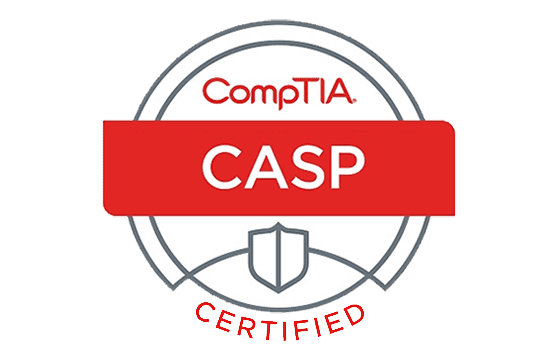
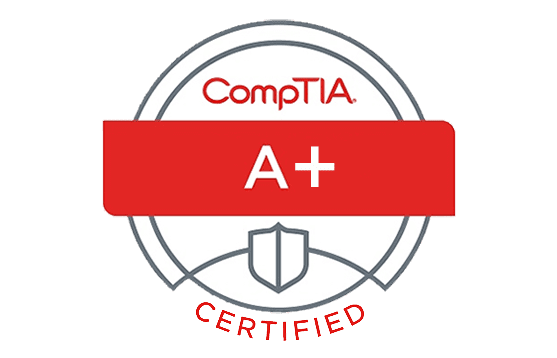
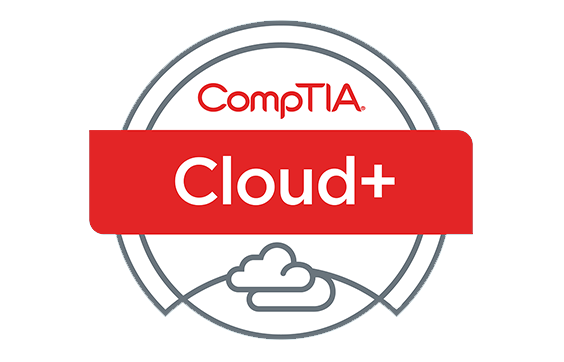
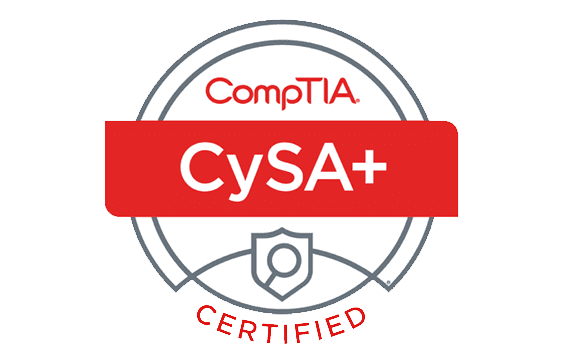
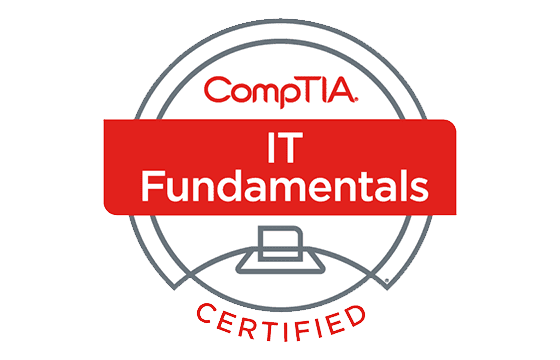

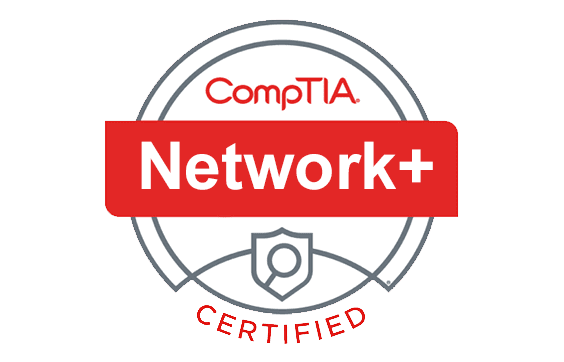
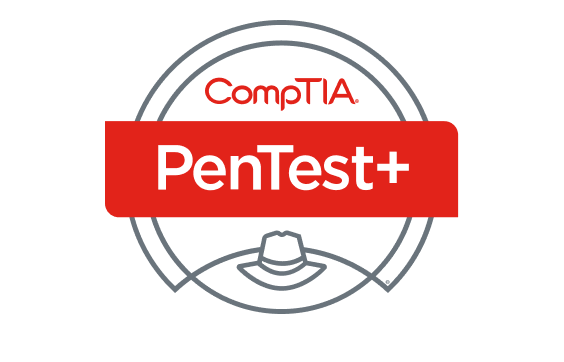
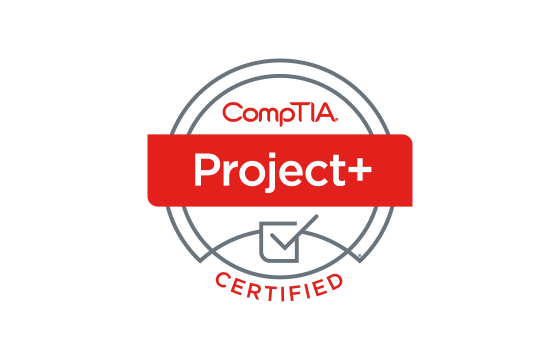
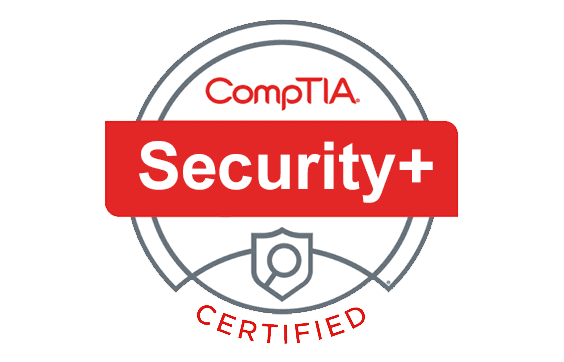





The exam was really difficult for me, but I passed it anyway. It’s all because of the practice questions I downloaded here. Otherwise, I think I would not pass it. Also, I think that the paid option will be more diverse than the free one that I chose. And maybe the test will be much easier for me in this case. Anyway, I passed, and I’m very glad about that.
I’m happy that I’ve managed to pass the FCO-U61 exam. I read every detail, explored the questions with the answers, and passed it. Thank you, ExamCollection!
I have used all the study guides for CompTIA, so I can assure you that any of them will help you to optimize your goals by combining it with the Q&A from ExamCollection. I bought the bundle and an exam simulator and was satisfied with my preparation. I was able to master my skills with the help of the guides and then evaluate them by taking practice tests. It worked splendidly for me and I passed the CompTIA IT Fundamentals test with flying colours.